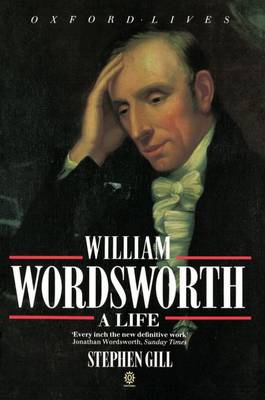Oxford Lives
1 total work
Based on intimate knowledge of the poet's manuscripts, on a fresh look at contemporary records, and on a study of the mass of material that has appeared since the last serious biography, a quarter-century ago, this new account of Wordsworth focuses on what was most important to him - his life as a writer.
The common notion is that the older Wordsworth betrayed his youthful, radical self to become a prosy Tory bore. By contrast, this intelligent and authoritative biography demonstrates that once the poet had returned to the Lake District, determined to live dedicated to poetry at whatever cost, his life took on a unity and purpose it had previously lacked. His politics certainly changed, and his poetic power waned, but from 1799 almost until his death in 1850, Wordsworth single-mindedly shaped
his own life in submission to an imaginative possession whose importance he never doubted.
It was, in its way, a heroic life. Wordsworth suffered numbing blows from the death of friends and family, including three of his own children. Critics reviled his poetry for over twenty years, and he never made enough money by his pen to live on - unlike his dear friend Scott. Yet his dedication to his art did not waver. In middle age he knew that contemporaries valued him as a moral sage; in old age he suffered the embarrassment of being a cultural icon. The lucid narrative that Stephen Gill
draws out is the story of that hard-won triumph: its purpose is to bring readers back freshly to poetry that is full of human understanding and experience, and a tested, sober faith in 'Man's unconquerable mind'.
The common notion is that the older Wordsworth betrayed his youthful, radical self to become a prosy Tory bore. By contrast, this intelligent and authoritative biography demonstrates that once the poet had returned to the Lake District, determined to live dedicated to poetry at whatever cost, his life took on a unity and purpose it had previously lacked. His politics certainly changed, and his poetic power waned, but from 1799 almost until his death in 1850, Wordsworth single-mindedly shaped
his own life in submission to an imaginative possession whose importance he never doubted.
It was, in its way, a heroic life. Wordsworth suffered numbing blows from the death of friends and family, including three of his own children. Critics reviled his poetry for over twenty years, and he never made enough money by his pen to live on - unlike his dear friend Scott. Yet his dedication to his art did not waver. In middle age he knew that contemporaries valued him as a moral sage; in old age he suffered the embarrassment of being a cultural icon. The lucid narrative that Stephen Gill
draws out is the story of that hard-won triumph: its purpose is to bring readers back freshly to poetry that is full of human understanding and experience, and a tested, sober faith in 'Man's unconquerable mind'.
